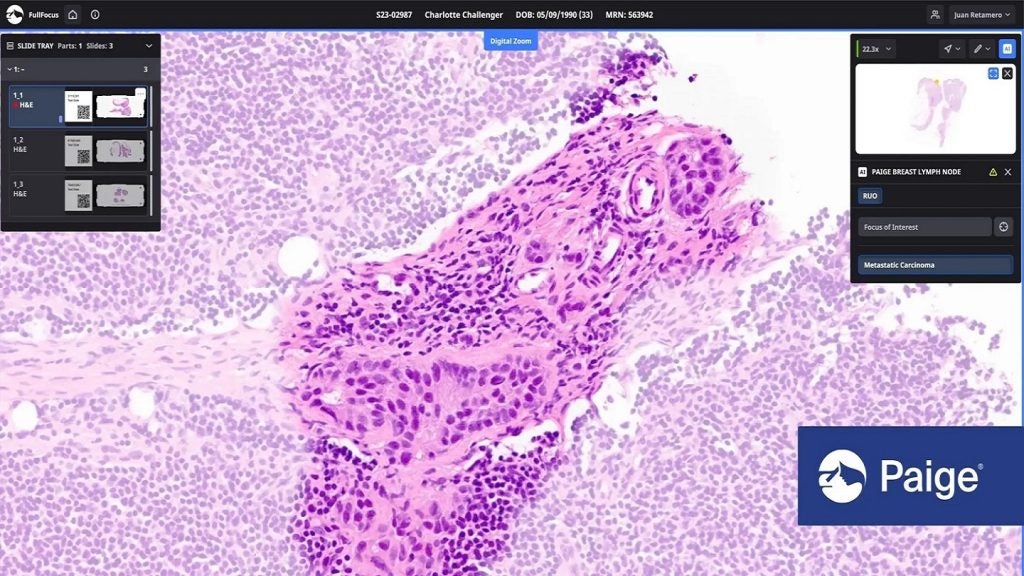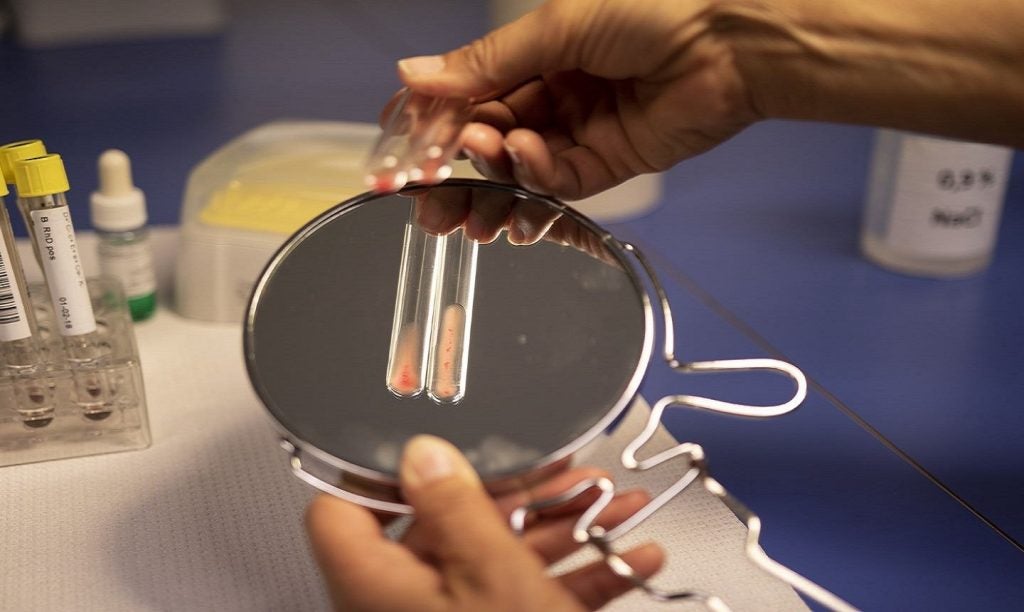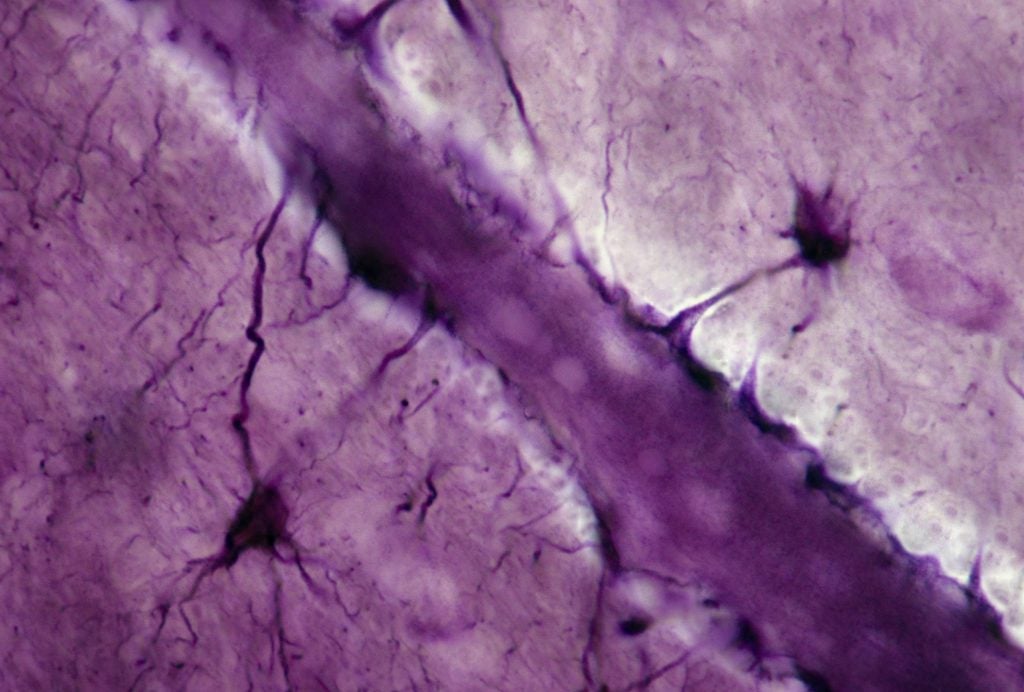Paige has received breakthrough device designation from the US Food and Drug Administration (FDA) for its in vitro diagnostic medical device software, Paige Lymph Node.
The new artificial intelligence (AI)-based application is intended for detecting breast cancer metastases in lymph node tissue.
This software is derived from a deep learning model trained using more than 32,000 digitised hematoxylin & eosin (H&E) lymph node slides.
Paige Lymph Node holds the potential to identify breast cancer metastases presence with near-perfect sensitivity.
The software simplifies the work of a pathologist by highlighting suspicious areas in lymph node tissue, facilitating an easier diagnosis process.
In the US, the Paige Lymph Node is intended only for research purposes and should not be used for diagnostic procedures.
Paige CEO Andy Moye said: “We are thrilled with the decision from the FDA to recognise the importance of AI in managing metastatic disease in breast cancer patients.
“The Paige Lymph Node algorithm saves pathologists time and provides critical information for pathologists to support their diagnosis amidst unprecedented demands and resource constraints.”
Earlier, the company received breakthrough designation for its Paige Prostate Detect AI application, which enables the detection of cancerous prostate tissue. It is approved for clinical use with the Philips Ultrafast Scanner in the US.
Paige also obtained approval from the FDA for the Paige FullFocus whole-slide image viewer intended for primary diagnosis.
















